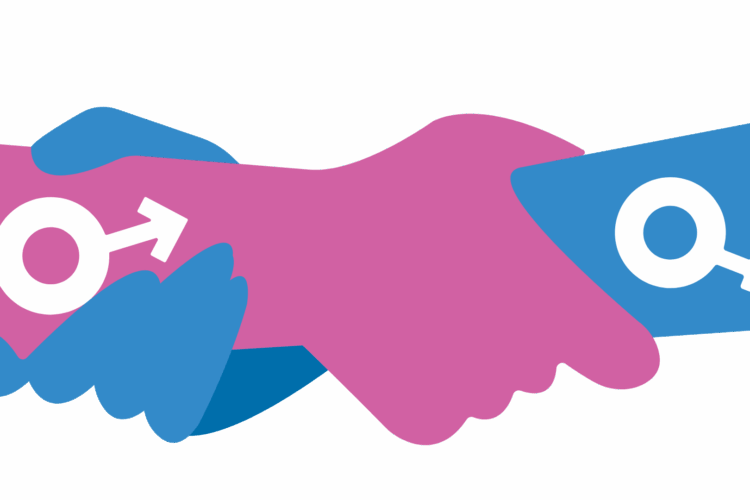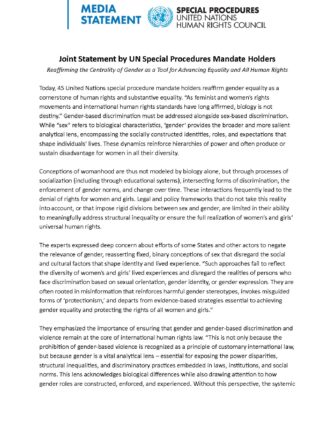Geneva, 28 August 2025
A group of 45 United Nations special procedure mandate holders has released a powerful joint statement affirming that gender, not sex, is the central tool for understanding inequalities and advancing human rights for all.
With this statement, the UN special procedures mandate holders stressed something that GATE and many feminist organizations and movements have been talking about for decades: gender is the most appropriate analytical tool for comprehensively grasping the roots of violence and discrimination, and it does not exclude or obscure sex-based violence and discrimination but fully encompasses it. Experts reaffirmed that while ‘sex’ refers to biological traits, ‘gender’ encompasses roles, expectations, and identities constructed within cultures and societies. These ‘social rules’, not biological characteristics, often create unfair disadvantages, especially for women and girls in all their diversity (including for trans and gender diverse people). Experts asserted gender as a “vital analytical lens – essential for exposing the power disparities, structural inequalities, and discriminatory practices embedded in laws, institutions, and social norms.” This lens, experts claimed, does not exclude or erase sex or biology. On the contrary, it acknowledges biological differences while also drawing attention to how gender roles are constructed, enforced, and experienced. Without this perspective, the needs and rights of many cis, trans and intersex women and gender diverse people remain invisible.
Experts say that:
Gender reflects how societies choose to treat men, women, and gender diverse people: whose needs are prioritized, what policies are adopted by States and private actors, and how power and resources are distributed.
Globally, some governments, organizations and actors are trying to strategically erase and neglect the importance of gender, stating that biological characteristics, rooted in a fixed binary model, are what matter only. These positions are often rooted in sexism and transphobia, are unscientific as they disregard decades of queer and feminist scholarship, and reinforce harmful gender stereotypes and policies while invoking systems of control guised under forms of ‘protectionism’. Experts raised serious concerns and explained why these biologically essentialist and reductionist views put many at greater risk of discrimination and violence.
They also underlined that numerous bodies, including the CEDAW Committee, have clarified that what was originally framed as discrimination on the basis of “sex” in the Convention on the Elimination of All Forms of Discrimination against Women and other treaties is, in fact, gender discrimination, stemming from the sociopolitical treatment of biological differences rather than the differences themselves. The experts highlighted that stereotypes and harmful ideas about masculinity, femininity, and gender roles hurt everyone: not just women and trans people, but also men and boys and everyone who falls outside the norm.
Showing a united single voice, experts called on States and all stakeholders to reaffirm the centrality of gender in international law, policy, and practice:
All women, in their diversity, must be guaranteed full and equal voice and protection under international law. Eradication of gender-based discrimination and gender-based violence are cross-cutting challenges that demand coordinated, sustained, non-retrogressive and non-discriminatory responses from States, businesses and all other actors – responses that are essential to realizing the promise of human rights for all.






